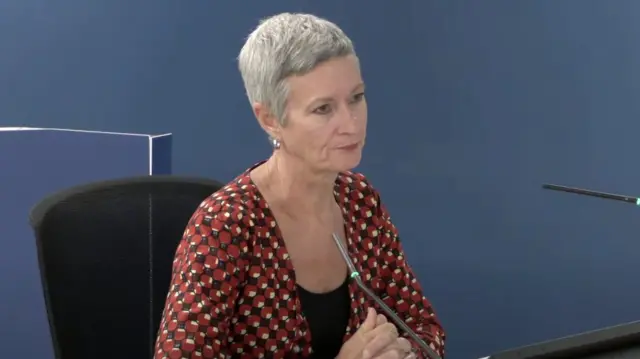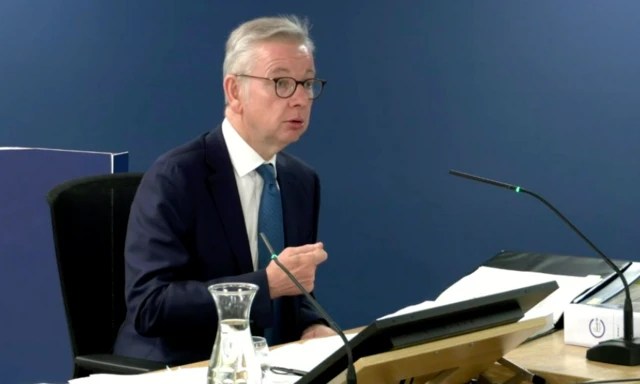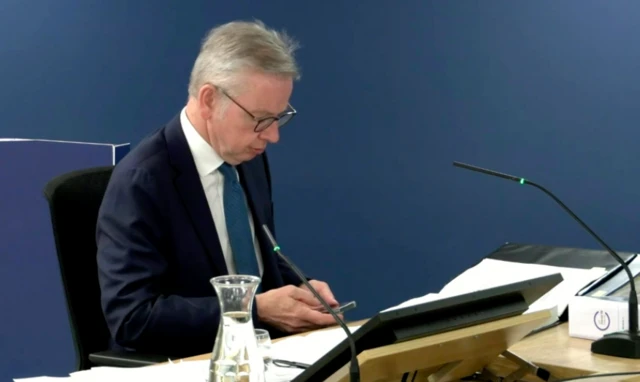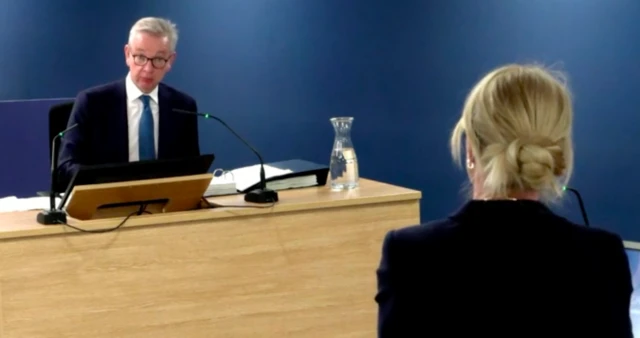Goodbye for nowpublished at 16:30 BST 13 July 2023
We're going to pause our live coverage now, thanks for joining us.
As we've been reporting, Cabinet Office minister Michael Gove was repeatedly asked whether the UK's planning for a no-deal Brexit from 2018 onwards meant some aspects of pandemic preparedness were put on the back burner - a suggestion he consistently rejected.
Other people who gave evidence today included:
- Marcus Bell (director of the Government Equality Hub)
- Melanie Field (chief strategy and policy officer of the Equality and Human Rights Commission)
- Nigel Edwards (chief executive of Nuffield Trust)
- Richard Horton (editor in chief of the Lancet, a medical journal, and author)
This page was edited by Marita Moloney, and the writers were Lauren Turner, Antoinette Radford and Jim Reed.
If you want to learn more about what the inquiry is investigating and how will it work, you can read this piece, while an explainer on the pandemic in numbers is available here.






